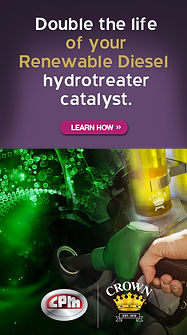Toyota Tsusho begins 3-month ship-to-ship marine biofuel bunkering trial at Port of Nagoya, Japan

Toyota Tsusho Corp. announced April 19 that Toyotsu Energy Corp. performed a trial with a tugboat operated by Sanyo Kaiji Co. Ltd.—an affiliate of NYK Line—for ship-to-ship bunkering of an undisclosed percentage of methyl ester biodiesel at the Port of Nagoya in Japan. According to the companies involved, this was the first attempt to supply marine biofuel using ship-to-ship bunkering in Japan. Ship-to-ship bunkering is a method of fueling a ship moored at a quay or pier by a fuel-supply ship. The marine biofuel supplied to Sanyo Kaiji’s tugboat was partly derived from waste cooking oil collected from companies in Japan through collaboration between Toyota Tsusho and Daiseki Eco. Solution Co. Ltd.
The Toyota Tsusho Group is focusing on efforts to switch to alternative fuels for ships, the company stated. Besides performing the first marine biofuel operation trial by a bunker barge in Singapore in April 2021, the group also performed a biofuel operation trial for an oceangoing vessel of NYK Line last June.
This time, the group plans to conduct a continuous marine biofuel supply trial over a three-month period for tugboats of Sanyo Kaiji at the Port of Nagoya, which handles the largest volume of goods in Japan. According to NYK Line, three test trials are planned to take place by July. This biofuel supply and test navigation are being carried out with the support of the Nagoya Port Authority. Through this initiative, the group will verify the effectiveness of using marine biofuel derived from waste cooking oil for coastal trading vessels.
The maritime transportation industry accounts for about 2 percent of the world’s greenhouse gas (GHG) emissions. In 2018, the International Maritime Organization adopted a strategy for reducing GHG emissions from ships and set a target of reducing GHG emissions by 50 percent by 2050, compared to 2008 levels. In addition, the Japanese government is targeting GHG emissions reductions by 46 percent by 2030, compared to 2013 levels, and achieving carbon neutrality by 2050. As a result, it is promoting a shift to petroleum-based marine fuels to alternative fuels under its Green Growth Strategy.




















-adjusted-to-spec.jpg)



